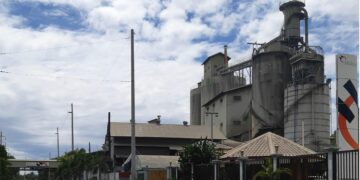Philippines Poised to Strengthen Economic Ties Through New Trans-Pacific Trade Alliance
In a strategic effort to deepen its economic integration within the Asia-Pacific region, the Philippines is preparing to become a member of an emerging trans-Pacific free trade agreement that is set to transform regional commerce. Amid ongoing global economic shifts and geopolitical uncertainties, Philippine leaders are optimistic about unlocking expanded market opportunities, attracting foreign direct investment, and reinforcing supply chain resilience. This initiative arrives at a crucial juncture as the country strives to rebound from pandemic-induced setbacks while enhancing its competitiveness on the world stage. With negotiations advancing steadily, industry experts and policymakers alike are evaluating how this partnership could redefine trade patterns and stimulate sustainable growth across multiple sectors.
Strategic Ambitions: Positioning the Philippines in Asia-Pacific Trade Networks
The Philippines aims to secure a central role within this new trans-Pacific trading framework by cultivating stronger bilateral and multilateral relationships that can drive economic expansion. As global commerce undergoes rapid transformation, Manila recognizes that forging robust partnerships is essential for local industries seeking competitive advantage in increasingly interconnected markets.
Key pillars of this strategy include:
- Modernizing Trade Infrastructure: Investing in port facilities, transportation networks, and digital logistics platforms to streamline export-import operations.
- Expanding Regional Engagement: Proactively strengthening diplomatic and commercial ties with Asia-Pacific nations through targeted dialogues and agreements.
- Boosting Export Readiness: Facilitating technology adoption among domestic enterprises alongside financial incentives aimed at scaling production capabilities.
A recent government analysis highlights promising sectors ripe for international collaboration—namely agriculture innovations, information technology services, and renewable energy projects—underscoring efforts not only to increase export volumes but also elevate Filipino businesses’ global competitiveness amid intensifying market pressures.
Navigating Opportunities and Obstacles for Filipino Industries Under New Trade Regimes
The introduction of fresh trans-Pacific free trade agreements presents Filipino companies with both exciting prospects as well as significant challenges. On one side of the spectrum lies access to broader consumer bases facilitated by tariff reductions and harmonized regulations; key beneficiaries may include:
- Agricultural Sector: Rising demand for tropical fruits like mangoes or coconuts could open lucrative export channels.
- Technology Startups: Enhanced cross-border cooperation fostering innovation hubs focused on fintech or software development.
- Manufacturing Industry: Opportunities for joint ventures boosting production capacity in electronics or automotive parts manufacturing.
The flip side involves confronting intensified competition from multinational corporations equipped with advanced technologies and economies of scale. Critical challenges encompass:
- Lagging Operational Standards: The threat posed by better-resourced foreign competitors adopting cutting-edge practices faster than local firms can keep pace with.
- Evolving Workforce Demands: Urgent need for comprehensive upskilling programs addressing gaps in technical expertise aligned with international benchmarks.
- Diverse Regulatory Landscapes:
Main Opportunity Main Challenge Expanded Market Access Across Pacific Rim Countries Heightened Competition From Global Players Collaborative Innovation Ecosystems Potential Skill Shortfalls Among Workforce Increased Foreign Investment In Manufacturing Facilities Navigating Complex Multinational Regulations
Tactical Recommendations For Policymakers To Optimize Gains From Trade Integration
Succeeding within this evolving trans-Pacific framework demands forward-thinking policies emphasizing inclusivity alongside long-term sustainability goals. Essential measures include:
- Simplifying Customs And Tariff Structures: – Streamlining border procedures reduces transaction costs while improving efficiency critical for exporters’ competitiveness.< /b>
- Cultivating Human Capital Development Programs: – Implement vocational training initiatives tailored toward skills demanded by export-oriented industries.< /b>
- Create Transparent And Consistent Regulatory Environments: – Clear legal frameworks foster investor confidence facilitating smoother cross-border business activities.< /b>
- Energize Support For SMEs: – Tailored assistance enables small- & medium-sized enterprises access new markets thereby diversifying economic participation.< /b>
< /ul >Additionally , fostering multilateral cooperation through public-private partnerships will magnify benefits . Recommended approaches involve :
- Facilitating Open Dialogues Between Government Entities And Private Sector Stakeholders To Align Policy Objectives With Industry Needs .< / li >
- Implement Ongoing Monitoring Systems To Evaluate The Impact Of Agreements , Allowing Adaptive Policy Adjustments Based On Empirical Data .< / li >
- Integrate Environmental Sustainability Into Trade Policies Ensuring Economic Growth Does Not Compromise Ecological Integrity Or Biodiversity Conservation .< / li >
A Forward-Looking Perspective On The Philippines’ Role In Regional Commerce Expansion
The impending accession of the Philippines into this transformative trans-Pacific free trade network signals promising avenues for enhanced regional collaboration coupled with accelerated economic growth trajectories . Various stakeholders remain vigilant regarding potential risks balanced against opportunities arising from deeper integration into global value chains . This milestone reflects Manila’s commitment toward fortifying its position amidst dynamic international markets while safeguarding national interests through prudent policy design . As negotiations advance , clearer insights will emerge concerning impacts on domestic enterprises , consumers , employment landscapes , ultimately shaping future prosperity pathways . Continuous coverage will track these developments providing timely analysis relevant both locally & internationally .
As developments unfold around this pivotal initiative shaping Philippine trade policy’s future direction , ongoing updates will be provided here ensuring stakeholders remain informed about emerging trends impacting national economic resilience .
- Cultivating Human Capital Development Programs: – Implement vocational training initiatives tailored toward skills demanded by export-oriented industries.< /b>









![[Expired] [Award Alert] U.S. Cities to São Paulo, Brazil From 50K Miles in Business Class – Upgraded Points](https://capital-cities.info/wp-content/uploads/2025/07/149760-expired-award-alert-us-cities-to-sao-paulo-brazil-from-50k-miles-in-business-class-upgraded-points-120x86.jpg)




Upcoming Polls Set to Be Bangladesh’s Most Credible Ever, Says Yunus’ Aide Shafiqul Alam